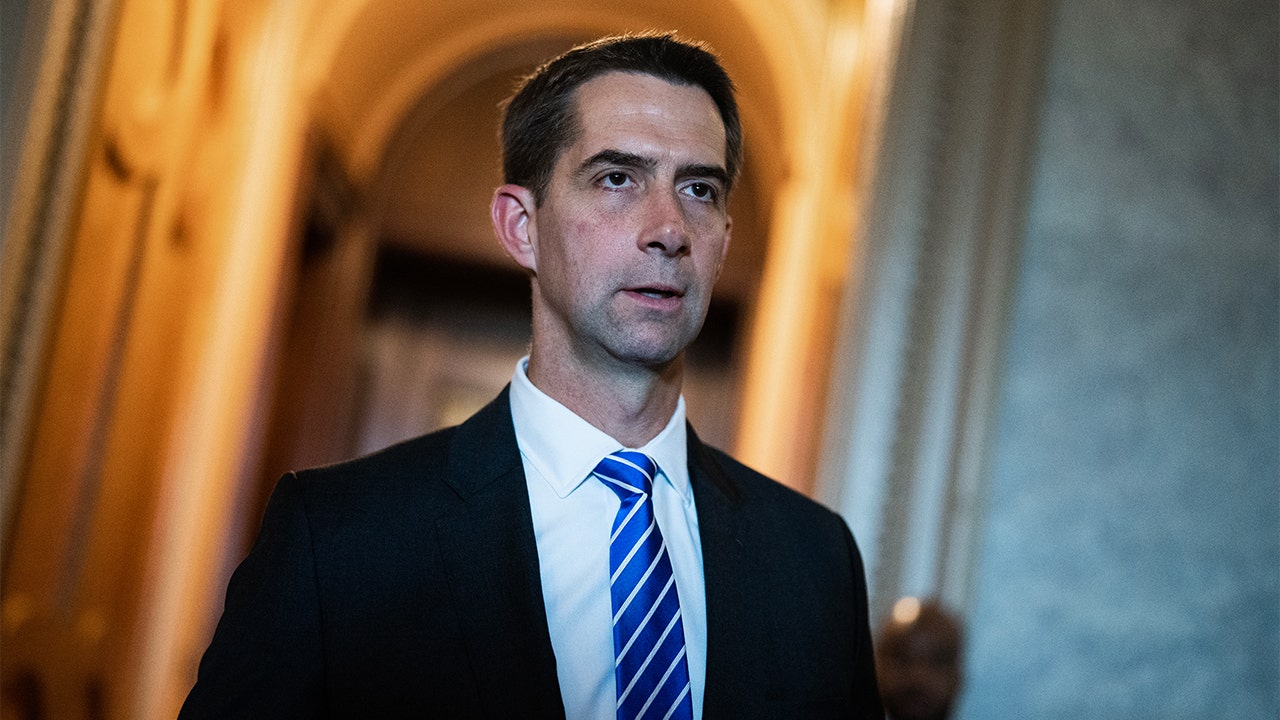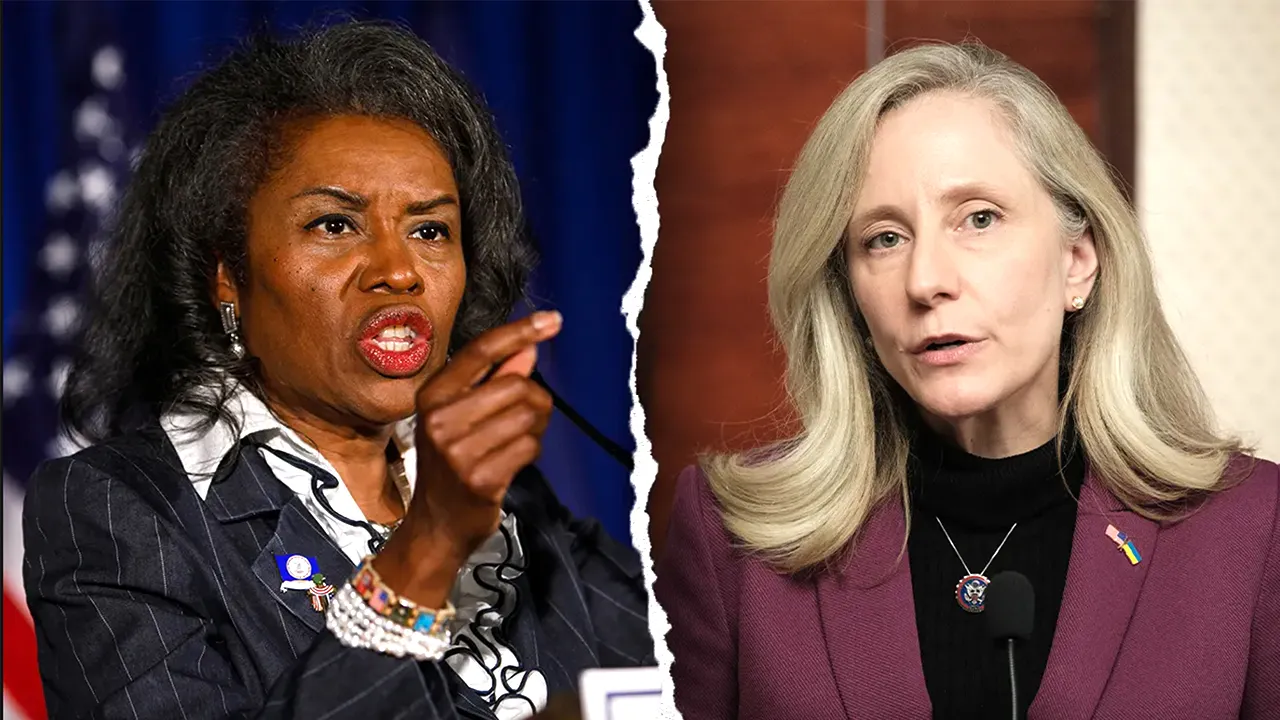A two-term Democratic governor, Ms. Mills called herself “battle tested” in an interview. But she faces a Democratic primary before she can challenge the Republican incumbent.

By Shane Goldmacher and Jenna Russell
Shane Goldmacher, a national political correspondent, reported from New York and Jenna Russell, the New England bureau chief, reported from Boston.
Oct. 14, 2025, 7:00 a.m. ET
Janet Mills, the two-term Democratic governor of Maine, announced on Tuesday that she was running for Senate, aiming to unseat Senator Susan Collins, who is widely seen as the country’s most vulnerable Senate Republican incumbent on the ballot in 2026.
Ms. Mills, who is term-limited, had been heavily recruited for months by Senator Chuck Schumer of New York, the Democratic leader, who was eager to find a proven winner to take on Ms. Collins. Ms. Collins, 72, is a rare Republican to survive in recent years in a Democratic-leaning state and is seeking her sixth term.
The Maine Senate race begins as the Democratic Party’s top pickup opportunity in 2026, with Ms. Collins the lone Republican up for re-election in a state that Donald J. Trump lost in 2024.
Typically, a Democrat of Ms. Mills’s stature would be warmly welcomed into such a contest, with other Democrats deferring to her. But Ms. Mills, 77, will find herself navigating a crowded primary, including against a 41-year-old oyster farmer and veteran named Graham Platner. Despite having never previously run for office, Mr. Platner has generated a national progressive following and raised $4 million in less than two months.
The state’s Senate primary is expected to be a test of some of the ideological and generational fault lines dividing the Democratic Party as it finds itself locked out of power in Washington, D.C.
If she wins next year, Ms. Mills would be 79 at her swearing in the following January, which would make her the oldest elected freshman senator in American history. It is a distinction the party is unlikely to highlight so soon after President Joseph R. Biden Jr. was pushed off the presidential ticket amid questions about his own age and acuity.
In an interview over the weekend, Ms. Mills acknowledged the legitimacy of voter concerns about age and said it had been one factor she considered as she weighed whether to run. But she said the country’s current situation calls for experience and the “battle-tested” electability she offers as the only Democrat to win a statewide race in Maine in the past 20 years.
“This is an urgent, unprecedented, dangerous moment in the country’s history, and it demands more of every one of us, including me,” she said. “Defeating Susan Collins will be hard — the stakes are high, and we should leave nothing to chance.”
The issue of age could play differently in Maine, which has the oldest population of any state in the nation. Last month, Ms. Mills said in an interview that while she could retire and spend more time with her five grandchildren, “I’m not ready for that. I want to do something more.”
Ms. Mills is one of trio of older, seemingly blue-chip recruits — along with former Gov. Roy Cooper, 68, in North Carolina and former Senator Sherrod Brown, 72, in Ohio — that Mr. Schumer has wooed into the 2026 elections.
Yet the push for Ms. Mills, in particular, has faced some criticism inside the Senate.
“It’s disappointing that some Democratic leaders are urging Governor Mills to run,” Senator Bernie Sanders, who has endorsed and campaigned with Mr. Platner, wrote on X last week ahead of her expected entry into the race. Mr. Sanders urged Democrats to “not waste millions on an unnecessary & divisive primary.”
Mr. Platner predicted in a recent interview that “the likelihood of losing is significantly higher” with Ms. Mills rather than himself as the Democratic standard-bearer because voters are so disgusted with the status quo.
“Going with someone who is very much of the establishment, going with someone who is very much of the party that has built the world we live in now, I think that runs a massive risk,” Mr. Platner said. “I don’t think it’s about age at all. I think it’s more about a way of thinking. It’s about, like, a more ossified kind of politics that has just existed within the Democratic Party at this point for 30, 40 years.”
A constellation of groups representing younger Democrats endorsed Mr. Platner on Monday, including Leaders We Deserve, the group led by David Hogg, the former Democratic National Committee vice chair who has prioritized bringing generational change to the party, and the College Democrats of America.
Mr. Platner has already begun to draw relatively large crowds to town halls, and his campaign said he had more than 9,200 volunteers in the state. He has said he would not support Mr. Schumer staying on as Democratic leader.
Other declared Democrats in the race include Jordan Wood, a former congressional aide whose campaign said it had raised $3 million, and Dan Kleban, a co-founder of the Maine Beer Company. Mr. Kleban has previously left open the possibility of exiting the race if Ms. Mills ran.
Ms. Collins has proved a particularly resilient campaigner. She had trailed in nearly every poll leading up to her 2020 race yet won somewhat comfortably on Election Day.
Image
Ms. Mills has been around Maine politics for a half-century, shattering glass ceilings in the state as the first woman elected as a district attorney, the first woman to serve as attorney general and the first woman to serve as governor. She was also in the state Legislature.
She won re-election by double digits in 2022, defeating her predecessor as governor, Paul LePage. Ms. Mills, who was raised in rural, western Maine in a family of politically active Republicans, counts Mr. LePage and Mr. Trump among the “bullies” she has faced down.
Earlier this year, she sparred with Mr. Trump at the White House over the issue of transgender athletes, launching a feud that has simmered ever since. Mr. Trump has demanded that Maine comply with his order to keep transgender women off women’s sports teams; Ms. Mills has refused to budge from her defense of the Maine anti-discrimination law that includes protections for gender identity.
“See you in court,” she told Mr. Trump at the White House.
“Enjoy your life after governor because I don’t think you’ll be in electoral politics,” Mr. Trump retorted.
In an interview, Ms. Mills described their clash as a “jaw-dropping moment.”
“That’s not what the Constitution says,” she said. “It doesn’t give him authority to enact laws by press release.”
Since then, Ms. Mills said, she has heard from many Maine voters urging her to run for Senate because they “want to see a fighter in Washington, with principled character.”
Ms. Mills’s success in a politically divided, largely rural state, where 46 percent of voters supported Mr. Trump in the last election, has been fueled by moderate positions. She oversaw some tightening of gun laws after the worst mass shooting in state history, in 2023, but disappointed many liberals and progressives who had pushed for more sweeping reform.
Ms. Mills has not kept up a robust political presence online since her re-election. Her campaign’s X account had not posted since the 2024 election, and her political Instagram account last posted celebrating her 2022 victory.
The rust showed on Friday afternoon when her account accidentally posted and then deleted news of her Senate announcement, and a fund-raising page. The misfire was mocked online, including by operatives for Senate Republicans aligned with Ms. Collins.
The National Republican Senatorial Committee, in a sign perhaps that they would prefer not to run against Ms. Mills, released a one-minute video attacking her record on Monday. “Maine Democrats are locked in a bruising fight between Chuck Schumer’s out-of-touch establishment and Bernie Sanders’ far-left radicals,” said Joanna Rodriguez, a spokeswoman for the G.O.P. committee.
Ms. Mills and Ms. Collins have long maintained a friendly relationship. But in recent interviews, Ms. Mills took aim at the Republican’s voting record, including her support of Robert F. Kennedy Jr. as health secretary and Linda McMahon as education secretary — votes Ms. Mills said prioritized party loyalty over the well-being of the people of Maine.
“I’m trying to preserve health care, and this man she voted for, RFK Jr., is tearing that apart,” she said. “While I’m building up education, the secretary she voted for is tearing it down.”
Asked where she will find the energy to run a tough campaign while doing the demanding job of governor, Ms. Mills was blunt.
“I’m pissed off,” she said. “Every morning when I read the news and find out what happened, it pumps me up in a way I’ve never felt before.”
Shane Goldmacher is a Times national political correspondent.
Jenna Russell is the lead reporter covering New England for The Times. She is based near Boston.

 11 hours ago
2
11 hours ago
2
.jpeg)























.jpeg)













 English (US) ·
English (US) ·